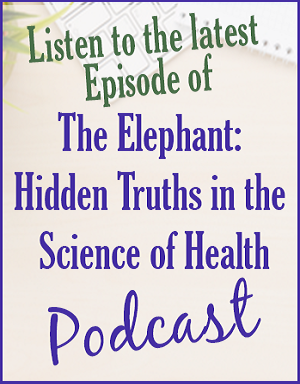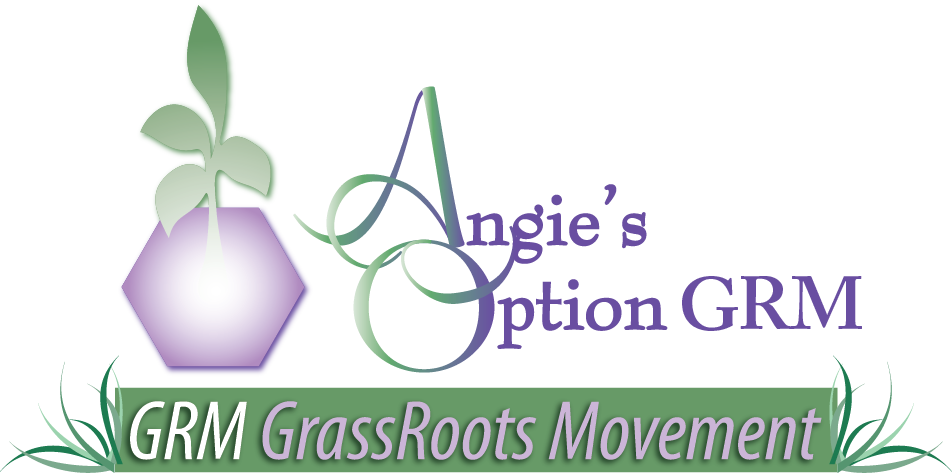Larry A. Law
TALEN and CRISPR
In my book, There's An Elephant in the Room--Exposing Hidden Truths in the Science of Health, on page 35 you can read about the gene-editing technology that was just emerging in 2017. Calyxt used Transcription Activator-Like Effector Nuclease (TALEN) to locate and edit sequences of DNA in the soybeans. TALEN and a newer tool called Clustered Regularly Interspaced Short Palindromic Repeats (CRISPR) are not as precise as gene-editing makes them sound. Their targeting efficiency can be quite low, meaning the tool is off-target (not in the right spot) much of the time. As documented in Nature Methods, this can lead to hundreds of unintended mutations in the soybean genome. These hidden mutations could cause unforeseen, long-term adverse effects in people eating these altered foods.
GMO Chickens and Pigs and...Oh, My!
If gene-edited soybean oil makes you feel like an unsuspecting guinea pig, you will find it disturbing to know that gene-edited chickens are being modified at the Roslin Institute at the University of Edinburgh in Scotland to resist the flu. Diseases like the flu can spread rapidly in Concentrated Animal Feeding Operations (CAFOs). CRISPR is used to target the ANP32 gene which contains a protein that flu viruses depend upon. Without this functioning gene, chickens are impervious to the flu. The Roslin Institute is also gene editing pigs to make them resistant to Porcine Reproductive and Respiratory Syndrome (PRRS); these permanent edits are passed down to subsequent generations. Other companies are using gene editing to remove genes that cause horns to grow in dairy cattle. This means that CAFO cattle will not require the expensive process of physically removing horns later on. This is all highly profitable to the biotech industry, but the safety of removing genes and their synergistic effects on other metabolic processes and the overall health of the gene-deleted organism is never safety tested for any length of time. In the organic world, it has been long acknowledged that the horns play an essential funtion in the calcium and hormonal balance of the cow and should not be removed.
Transgender Bovines
The industry is not stopping at gene editing. The US Department of Agriculture (USDA) has funded a study which adds the SRY gene to cattle. This makes female cows turn into males with larger muscles, a penis and testicles, but no ability to create sperm. Transgender cattle are more valuable to the beef industry because they get bigger faster and produce more meat and therefore profits. Government regulators are under pressure to keep gene-edited products unlabeled since they have only been altered (genes deleted) without any foreign genetic material being added or inserted. The biotech lobby is very powerful and it wasn't until recently that the industry was pressured into labeling the injection of actual foreign genetic material as GMO in the United States. Michaels Antoniou, a London-based molecular geneticist stated, "Many of the genome-editing-induced-off-target-mutations, as well as those induced by the tissue culture, will no doubt be benign in terms of effects on gene function. However, many will not be benign and their effects can carry through to the final marketed product, whether it be plant or animal...
Labeling
It isn't just soybeans undergoing gene editing. Potatoes have been gene edited to remain fresher-looking longer (resist turning brown). Wheat, potatoes, and canola oil are all currently under development using gene-editing techniques. Japan has followed the US in concluding that gene-edited foods can enter the marketplace without safety studies. Only the European Union has ruled that gene-edited crops must go through the same approval process as GMOs and be labeled. USDA Organic It is important to purchase food labeled organic because gene-edited food cannot be labeled as such. Organic food is not gene-edited. The National Organic Standards Board voted unanimously to place CRISPR technology on the excluded methods list. They stated, "It very clearly is a GMO [method] and has no field history of improved varieties to evaluate what unintended effects the technology might have on the environment, just like all of the GMOs released into the environment have had unintended effects that don't show up for a number of years." Hopefully the US government will ultimately reconsider and decide to classify gene-edited foods as GMO. Until then, look for foods with the USDA Organic label to ensure the food you eat does not contain GMOs or gene-edited products. Non-GMO Project Label Even better for certifying GMO is the Non-GMO Project label. As stated on their website, "While the National Organic Program (NOP) identifies genetic modification as an excluded method, GMOs are not listed as a prohibited substance. This means that although GMO seeds are not supposed to be planted and GMO ingredients are not supposed to be used, no testing is required to show whether any GMO cross-pollination or contamination has occurred. These rules were established at a time when GMOs were in limited production and neither cross-pollination nor contamination was a significant risk. Unfortunately, that is no longer the case. Genetically modified varieties now make up the majority of key commodity crops in North America such as corn, soy, cotton and canola. As such, cross-pollination from GMO crops and GMO contamination of non-GMO seeds, ingredients, and products is a real risk, even for certified organic products. The good news is that the NOP has excellent guidelines for traceability and segregation, and the Non-GMO Project is designed to honor the work that certified organic companies are already doing, with the added measure of testing risk ingredients at critical control points."
So, the USDA Organic label is best for organic (limited pesticides/herbicides) and great for non-GMO. The Non-GMO Project label is the absolute best for non-GMO but does not address organic. Finding both labels on a product is your safest bet for organic and non-GMO certified food.
2 Comments
Larry Law
8/10/2022 08:23:51 pm
Hi Jiany,
Reply
Leave a Reply. |
BlogArchives
July 2024
Categories
All
|
© Angie's Option GRM. All rights reserved.








 RSS Feed
RSS Feed

